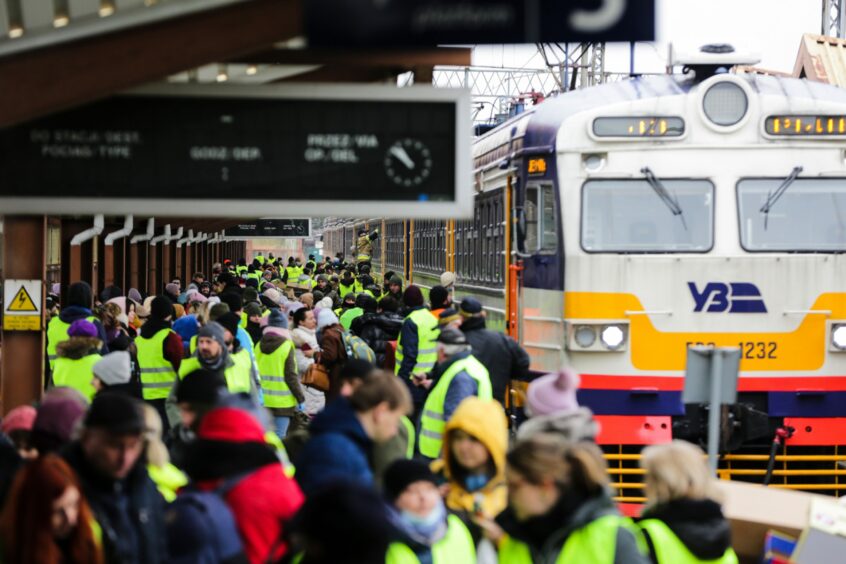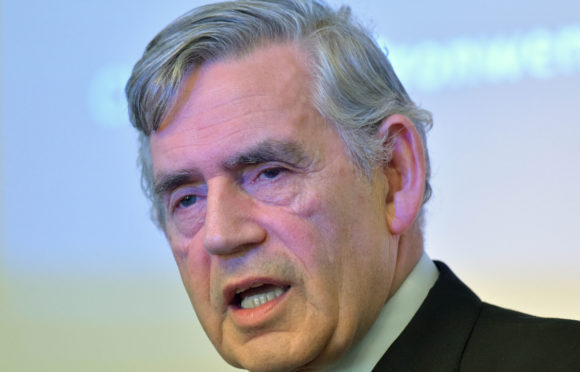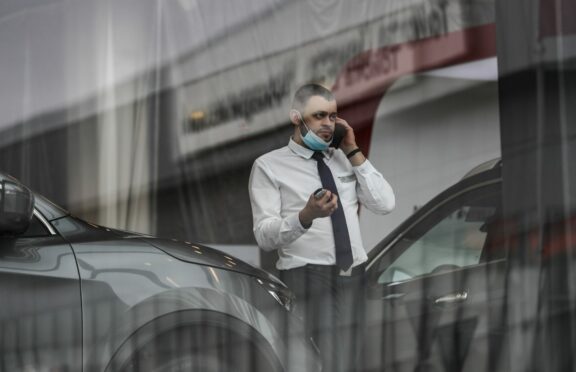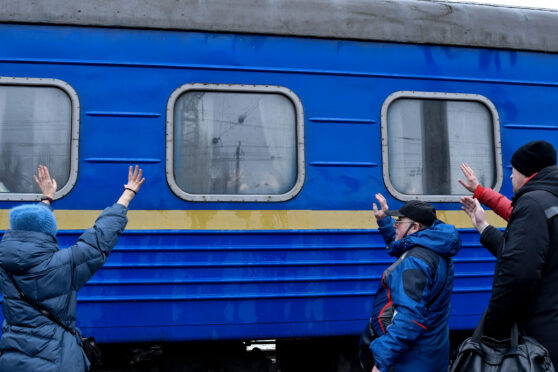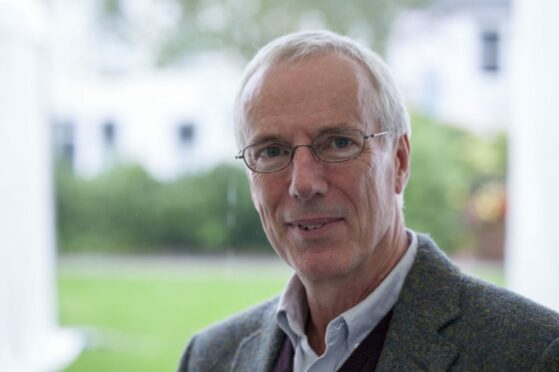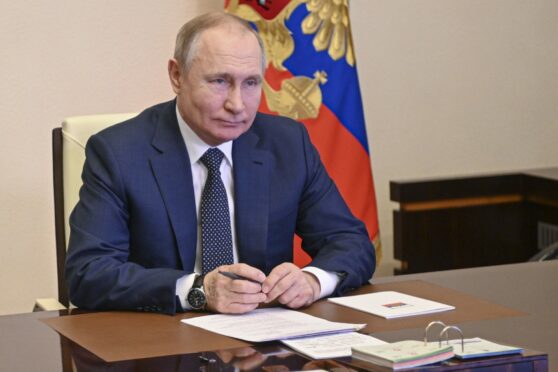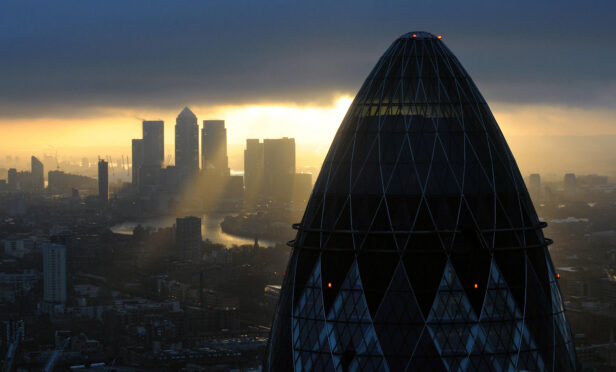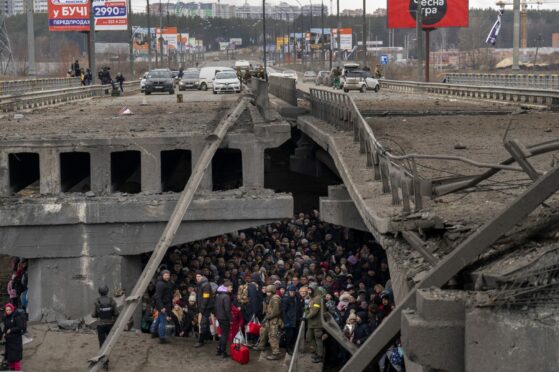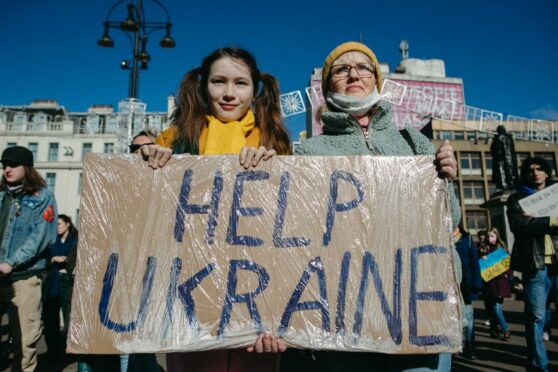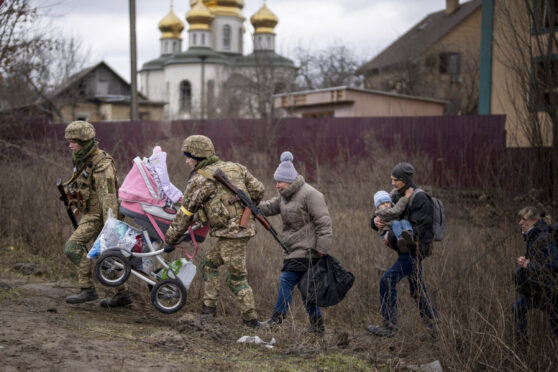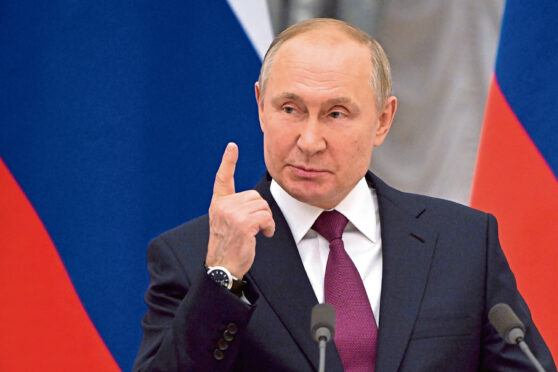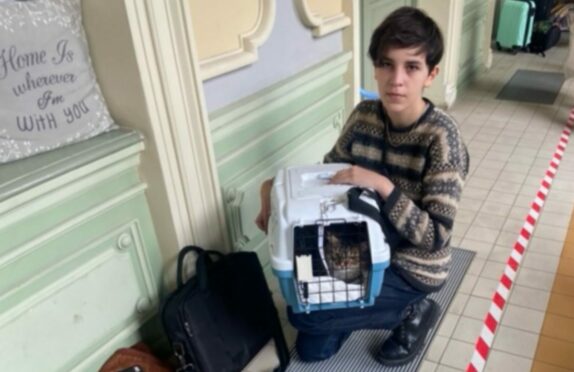
“We Poles always show our best side in a crisis,” a policeman says proudly as we wait for an incoming train bringing the next batch of Ukrainian refugees over the border into Przemysl’s main railway station. It’s hard not to agree with him.
The grand 19th-Century building has processed roughly half of the 600,000 Ukrainians arriving in Poland since Russia attacked Ukraine 10 days ago. This small town of 60,000 nestled in the foothills of the Carpathian mountains has seen its population double since then.
With little fuss and great efficiency, staff at the station, alongside volunteers, police and others manage the incoming transports with care and generosity. The trains arrive sporadically, often held up for 11 or 12 hours at Lviv, only 30 miles over the Ukrainian border.
The Ukrainian people come with little more than suitcases, some hurriedly packed as Russian soldiers and tanks approached their cities, towns or villages. Many have brought pets, one a beautiful poodle guided effortlessly through the throng by her elegant female owner, sporting sunglasses and high heels.
“We didn’t have time to water our plants, I hope my neighbours will do it for me,” one man says as we chat outside the station. His wife is eating a warm sandwich provided by the small army of Polish helpers inside the station.
The weather is cold, though above freezing, thankfully. The people are tired but evidently relieved to have made it. Some of those waiting for the arrivals hold cardboard signs offering assistance, free transport and translations. Some of the signs are for travel to Germany, Sweden or Italy. Several African students and a family of Vietnamese are also here. Little floor space is unused. It is a scene of quiet and calm after the storm.
Nineteen-year-old Daryna is sitting on the floor of the station when we talk. Only 10 miles over the border on the Polish side, Daryna says this is a different world from the one she has just left. She is accompanied by her exhausted mum and four-year-old cat, Copper, in his travel box. Her parents, she said, are both journalists in Kijow and have been targeted by the Russians. “If they occupy the city, I fear for my dad’s safety,” she says.
Her dad had to stay in Ukraine because, at 44, he is considered to be of fighting age. Ukraine’s president, Volodymyr Zelensky, has barred men between 18 and 60 from leaving Ukraine.
Daryna is a first-year student at the Kijow Culture University (Naukma). She doesn’t know if she will be able to continue her studies.
“We heard stories of Russian armoured vehicles getting lost in our neighbourhood, Obolon, a suburb of Kijow.”
She says some of the Russian soldiers are not much older than her and are terrified. “Some seemed to want to surrender,” she says. “Our neighbour has three kids and is a single mum, she couldn’t leave the block of flats. I worry about her a lot. For now we can communicate by text, but we don’t know for how long,” Daryna said.
Daryna discovered her great grandmother was Jewish when she was 13 and is considering applying for Israeli citizenships. For now she plans to travel with her mother, Maryna, to Germany.
Two Ukrainian volunteers working at the station say they would probably not return to Ukraine in the near future. “We are scared to go back,” says 27-year-old Ruslana.
Twenty-five-year-old Anastasiia, also from Vinnytsia, a town in the east of Ukraine, says she and Ruslana arrived in Poland on Tuesday after a 24-hour bus journey.
Ruslana says she has a seven-year daughter who is being looked after by her sister in Katowice, south-western Poland, about 5 hours away by train.
Liza, a 19-year-old second-year law student from Kijow, is preparing to drive to Pesaro in Italy, where her aunt lives, when we meet.
“My dad drove me here from Kijow. It took 24 hours. We stayed in a town with relatives on the way near Moldova, but even there it is not safe. When he had to drop off me and my mum on the Ukrainian side of the border we all wept. I don’t know when I will see him again,” she says. It is a familiar story.
A 30-something couple, Yulia and Vlodimir, who were waiting to be picked up by a German volunteer and taken to Berlin, say they had packed their bags in a hurry and fled when the fighting got too close.
“We live three miles from where fighting was going on and the shelling got too loud. We just packed our stuff and walked to the local station. Our daughter, Tamara, has autism and epilepsy, while one-year-old Ivan hasn’t slept properly for two days on the journey,” Yulia says.
Yulia is carrying Ivan, now thankfully asleep, in her arms. She says they ran out of nappies on the train and there was nowhere to change him. At Przemysl station a volunteer is handing out nappies and clean wipes to those who need them.
Yulia is a family GP and Vlodimir a neurosurgeon in the central town of Bojarka. “The journey was difficult for everyone, only two working toilets for six carriages, too many people, children crying, lights on and off. We were then kept at Lviv railway station underground for three hours. We will go to Germany for three months and then consider our position,” she said.
Vlodimir says he had heard horror stories on the train about Russian troops firing at passing trains. He shows me a video shot by the son of a friend who had been shot in his car by Russian troops. As he lies dying in the road, Vlodimir tells me that is why they left.
A stream of men is also moving from Poland back into Ukraine, estimated at around 20,000. A British man from East Croydon, 21-year-old Nick, says he has come to Poland to “fight for freedom”. He has never fired a gun.
Zelensky has called to foreign nationals who are “friends of peace and democracy” to travel to the country to fight the Russians.

Enjoy the convenience of having The Sunday Post delivered as a digital ePaper straight to your smartphone, tablet or computer.
Subscribe for only £5.49 a month and enjoy all the benefits of the printed paper as a digital replica.
Subscribe